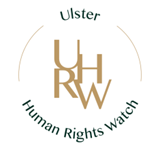Human Rights Body Calls for New Approach to Dealing with the Past
Meeting with Nicholas Hurd, Minister of State, in Stormont House
19-08-2019
Ulster Human Rights Watch Advocacy Service is calling today for ‘a completely new approach’ to dealing with the legacy of the past.
The victims and survivors service, which is publicly funded and a registered charity, told the Minister of State, Nick Hurd MP, that proposed measures contained previously in the Stormont House Agreement and recently republished following a consultation exercise by the N.I.O. would serve to ‘launder’ the actions of terrorists and do a great disservice to those who suffered and society at large.
At their Stormont House meeting, Ulster Human Rights Watch’s Advocacy Service Manager, Axel Schmidt, said the government had to re-think its plans on how to deal with the past if it is to avoid an unbalanced and one-sided system that favours the bomber and gunman.
Mr Schmidt said: “During a positive and productive meeting with the new Minister we set out our view that proposals on a Historical Investigations Unit will be anything but fair. It is unconscionable to think you can have parity between the terrorist and the victim or members of the security forces who, over a period of nearly four decades have protected the whole of society throughout Northern Ireland.
“The present proposal is heavily biased against police officers and will lead to one-sided investigations against the security forces. Security forces keep formal records, terrorists don’t. They can pick and choose to suit their warped agenda and can readily destroy and have done so in the past, any incriminating evidence.
“The inclusion of what is termed ‘non-criminal police misconduct’ means officers could be investigated twice by the proposed HIU. Consequently this means that officers who protected the community against terrorism and have long since retired could be hauled back into the spotlight to be investigated by the HIU, causing, once again, great stress and trauma to both them and their families.”
Ulster Human Rights Watch Advocacy Service also set out the reasons why it is opposed to an Independent commission on Information Retrieval (ICIR) and the Oral History Archive (OHA), which are tailor-made for terrorists to tell their stories without fear of prosecution, and also submitted to Minister Hurd detailed alternative proposals which the organisation believe would be a fair and equitable solution to this intractable problem.
Mr Schmidt added: “The Ulster Human Rights Watch (UHRW) strongly believes that dealing with the legacy of the past requires a completely new approach, with the clear three-fold objectives of upholding the rights of all innocent victims of terrorism, respecting former members of the security forces and strengthening the hand of the State in the fight against terrorism.”
